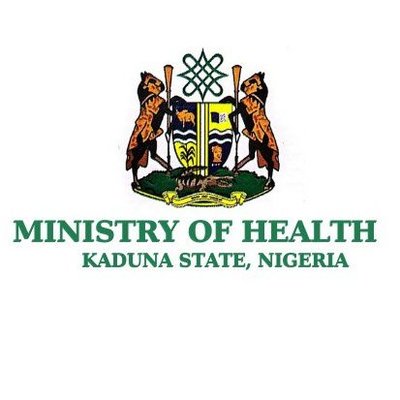Health
FG to make PHCs attractive for health workers, rural dwellers — Ehanire
The Federal Government says measures have been put in place to make Primary Health Care Centres in rural areas attractive for health workers.
The Minister of Health, Dr Osagie Ehanire, said this in Abuja on Thursday during the World Health Day, as the World Health Organisation (WHO) turns 75.
The News Agency of Nigeria (NAN) reports that the theme of the 2023 World Health Day is ”Health for All –Strengthening PHC to Build Resilient Systems”, while the theme of the World Health Workers Week is “Investing in the Health Work Force”.
Ehanire said that health workers preferred to practice in cities, thereby depleting manpower in healthcare facilities in rural areas.
He added that ”government is trying to make rural PHCs more attractive, as plans have
been put in place to build staff quarters to address accommodation problems.
”The lack of staff quarters has been a problem because health workers don’t have a place to stay when sent to rural areas.
”We will ensure provision of water, electricity or solar energy to have light in the centres for better performance to encourage health worker to stay in the rural areas.
“We are also making provision for ambulances that will make transportation easy for patients and health workers.”
According to him, another incentive from government is to focus on particular caregivers of health workers that are specialised in a particular area.
Ehanire added that the Federal Government had urged state and local governments to establish schools of health technology where rural health workers would be trained.
He explained that the workers could be trained in local languages to enable them to easily communicate with the rural citizens.
According to him, government also encourages the state and local governments to nominate health workers from their communities to be trained for better understanding and improved communication.
The minister said government was planning to make use of digital technology to make communication easier for medical personnel and patients to enhance better outcome.
“We hope that all our measures will encourage the state and local governments to prioritise employment and payment of rural health workers, especially the PHC workers.
“This is because PHCs are under the payroll of state and local governments.”
He said that the Federal Government, in a bid to reverse poor health indices and provide Universal Health Coverage, initiated the revitalisation of about 10,000 PHCs nationwide, adding that more than 4,000 PHCs have so far been worked to ensure quality services.
Steps taken have improved PHC services in the country and reduced challenges women face in childbirth and addressed home emergencies.
According to him, immunisation has recorded significant improvement from 33 per cent in 2016 to 57 per cent in 2021 in spite of COVID-19 pandemic distractions.
He said that the 2022/23 Supplemental Immunisation Activities (SIAs) were integrated into other PHC services under the motto: “One Country, One Team, One Plan, One Budget.”
Dr Walter Mulombo, WHO Country Representative to Nigeria, said that WHO Nigeria in collaboration with the government had been achieving notable strides in keeping the people safe and serving vulnerable population.
Mulombo listed areas of achievement to include combatting infectious disease, HIV treatment, reducing maternal mortality, increase in life expectancy, and supporting disease eradication.
He said that “in 1948, countries around the world came together and founded WHO to
promote health, keep the world safe and serve the vulnerable so everyone, everywhere can attain the highest level of health and well-being.”
He said that currently, the organisation was supporting Nigeria to interrupt circulating vaccine derived polio virus type 2) cVDPV2 outbreak.
He added that in 2022, there was 84 per cent reduction in cVDPV2 registered compared with
2021.
“In recent times, WHO supported Nigeria in the fight against the global COVID-19 pandemic. As at April 3, 2023, 71.1 per cent of eligible population have been vaccinated with at least one dose.
Mulombo said that the organisation had been supporting government across all levels to build the capacity of health workers to improve health resources and services provided in the country.
He said WHO had continued to support the protracted humanitarian crisis in the northeast region of Nigeria since 2016.
“As we look forward to building a stronger WHO that delivers results and is enabled and empowered to play its leading role in global health, let me assure that WHO will continue to support Nigeria to promote health, provide health, protect health, power health and
perform for health,’’ Mulombo said.
Health
KDSG trains 180 Red Cross volunteers on Lassa Fever intervention

The Kaduna State Ministry of Health has begun a three-day training for 180 Red Cross volunteers on Lassa fever intervention.
The training, which is facilitated by the ministry and funded by the Red Cross, is meant to equip the volunteers selected from 5 LGAs in the state with necessary skills.
The volunteers were drawn from Zaria, Igabi, Kaduna South, Kaduna North and Chikun Divisions.
The State Epidemiologist, Dr Jeremiah Dikwu, said the volunteers were trained with the knowledge needed to massively intervene during cases of Lassa fever in the state.
He said that the intervention would include Risk Communication and Active Case Search, Psychological First Aid, Rodent Control and Hygiene Promotion for the next 3 months.
Dikwu said the training started with 30 volunteers on surveillance and would end with the training of 150 volunteers on Risk Communication and Community Engagement .
According to him, Lassa fever is a viral hemorrhagic fever transmitted by rats.
He added that Lassa fever has been known since the 1950s, but the virus was not identified until 1969, when two missionary nurses died from it in the town of Lassa in Nigeria.
Dikwu added that Lassa fever was caused by a single stranded RNA virus and disseminated systemic primary viral infection.
“The main feature of fatal illness is impaired or delayed cellular immunity leading to fulminant viraemia,” he said
The epidemiologist said that Lassa fever presented symptoms and signs indistinguishable from those of febrile illnesses such as malaria and other viral hemorrhagic fevers such as Ebola.
“It is difficult to diagnose clinically but should be suspected in patients with fever (e”38°C) not responding adequately to antimalarial and antibiotic drugs.
“The most useful clinical predictors of Lassa fever are fever, pharyngitis, retrosternal pain, and proteinuria for diagnosis; and fever, sore throat, and vomiting for outcome,” Dikwu said.
He said that Ribavirin and general support were needed.
“Ribavirin is almost twice as effective when given intravenously as when taken orally, and if given within six days of the start of illness it may reduce deaths by 90 percent.
“Dehydration, oedema, hypotension, and poor renal function are common; fluid replacement or the use of blood transfusion requires careful monitoring,” he said.
Dikwu said the volunteers would be carrying out Risk communication and Community engagement, Active Case Search, Psychological First Aid, Rodent Control and Hygiene Promotion
Health
Assembly passes Kano Pre-Marital Health Screening Bill


Kano State House of Assembly has passed a bill for a law to compel intending couples to undergo HIV, hepatitis and sickle cell anaemia screening before marriage.
The passage followed deliberations in the Committee of the Whole House during plenary session,
presided over by the Speaker, Ismail Falgore on Monday in Kano.
After deliberations, the lawmakers approved the 3rd reading of the bill, read by the Deputy Clerk, Alhaji Nasiru Magaji.
Shortly after passage of the bill, the Majority Leader of the house, Lawan Hussein (NNPP-Dala), stated that “any person
intending to marry shall first submit self for medical examinations.”
He said the bill was considered and passed after the 3rd reading, following various legislative processes.
The leader further said that the bill was passed because the state had been battling with different health issues, including
HIV because people go into marriages without medical screening.
He said that the bill, if signed into law, would save many lives and curb the spread of life-threatening diseases.
“The bill will safeguard the health of citizens by institutionalising pre-marital testing to check the spread of diseases
like hepatitis, HIV and sickle cell anaemia,” he added.
Health
WHO to begin vaccination against Human Papilloma Virus May 27 in Kogi


The World Health Organisation (WHO), says it plans to commence vaccination against Human Papilloma Virus (HPV) on May 27 in Kogi.
The state’s Team Lead of WHO, Dr Muktar Toyosi, said this when he led his team on an advocacy visit to the State Council of the Nigeria Union of Journalists (NUJ) on Wednesday in Lokoja.
Toyosi said that the vaccination was meant for girl child of between the age nine and 14.
He said the ongoing sensitisation was to keep the people informed, and educate them on the vaccination of their children to protect them against cervical cancer in future.
”Kogi falls within the second phase of the programme. We are soliciting for the cooperation of the media in educating the people of the state on the HPV vaccination.
“There need for girls child across the state to take the vaccination to safeguard their future.
“Although the vaccine was initially scarce and difficult to get, the good news now is that it has been made available by the government,” Toyosi said.
Also speaking, the State Technical Assistant for WHO, Dr Ahmed Attah, said that the HPV mostly affect women, adding that the vaccination remained a preventive measure against the disease.
Attah, a former state Chairman of the Nigeria Medical Association (NMA) and a former Chief Medical Director (CMD), Kogi Specialist Hospital (KSSH) Lokoja, urged parents and guardians to avail their children of the vaccination to justify government’s investment.
In his response, the Kogi NUJ Chairman, Mr Seidu Ademu, described the health sector as very critical, stressing that the vaccination was a right step in the right direction.
Ademu promised a robust partnership with WHO to enable the team to achieve its set goals.
He stressed the need to inform, educate and sensitise the general public on the need to embrace the vaccine by ensuring that girls within the age range were vaccinated.
-
capital market2 years ago
Rt.briscoe, FBNH, Others halts negative performance of stock market
-
Finance3 months ago
Court orders Sen. Victor Umeh to repay N136m bank debt to AMCON
-



 Abuja Update2 months ago
Abuja Update2 months agoUNDP, FG partnership needed to achieve inclusion, equity- Minister
-
Abuja Update1 month ago
Banks drive stock market performance with N147bn gain
-



 Business1 week ago
Business1 week agoTingo Group unveils Tingo Electric, Tingo Cola drink at Lagos launch
-



 Health2 weeks ago
Health2 weeks agoCapacity training will reduce migration of health workers- NPHCDA
-
News4 months ago
Oil thieves sponsoring malicious media campaign against Navy – Spokesman
-



 Infotech1 month ago
Infotech1 month agoWorld Backup Day: NITDA urges Nigerians to ensure backup of data




